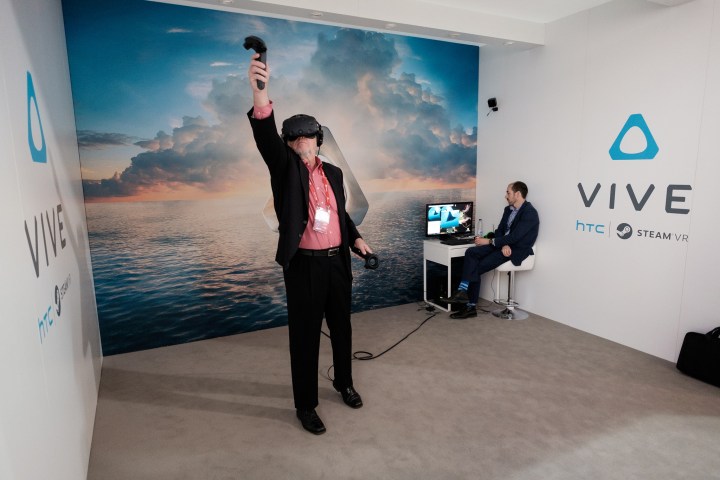
At the 2016 VR Developers Conference in San Francisco, California, HTC has announced that its Viveport Arcades will be coming to the US, China, and Europe, giving the general public a chance to experience VR.
HTC will be licensing software to movie theaters, cafes, and full VR arcades. This will allow retailers to set up their own public VR spaces and use games like The Brookhaven Experiment and Everest VR to entertain customers. It will all be done through the Viveport app, meaning setup should be easy for proprietors. HTC has also fully committed to the VR arcade idea by opening Viveland in Taiwan last week.
Developers are also welcome to jump in on the arcade action by listing their games on the Viveport app store. Profits from the Viveport app will be split between HTC and developers. Currently, 120 experiences are available, but pricing is not yet final. Costs range from $5 for a small experience to $13 for a full-room experience where players can walk around in VR within a private booth.
HTC plans on turning VR into a $100 million industry over the next two years. The only way to do that is to get VR headsets into the hands of consumers. But that will be difficult considering the high price tag, and the fact that most have never had the opportunity to try any VR headset outside of a cardboard solution with a smartphone. The Vive currently sells for $800 and requires a pretty hefty gaming PC.
Even if HTC is able to get consumers interested in VR via arcades, it’s still uncertain if people outside the hardcore audience will be willing to drop over $1,000 for a true at-home VR rig.


